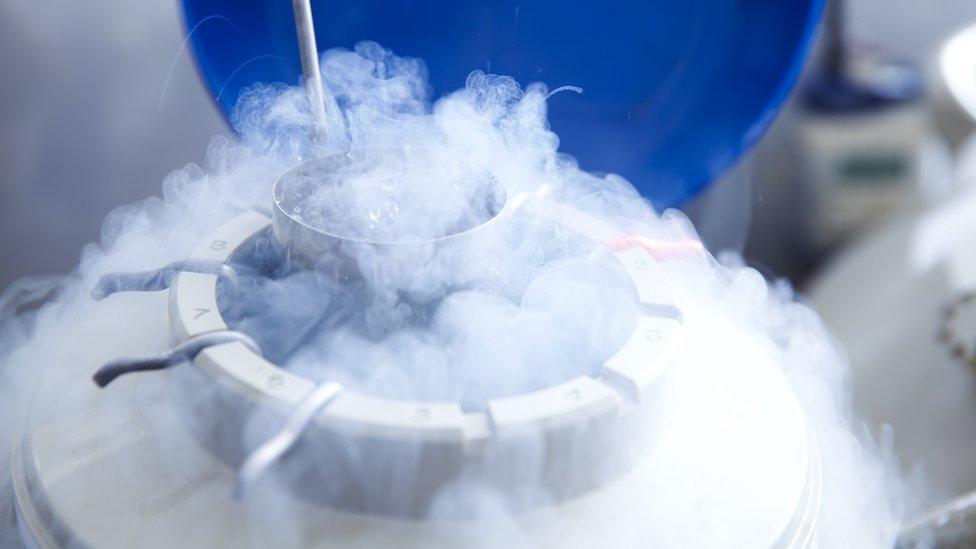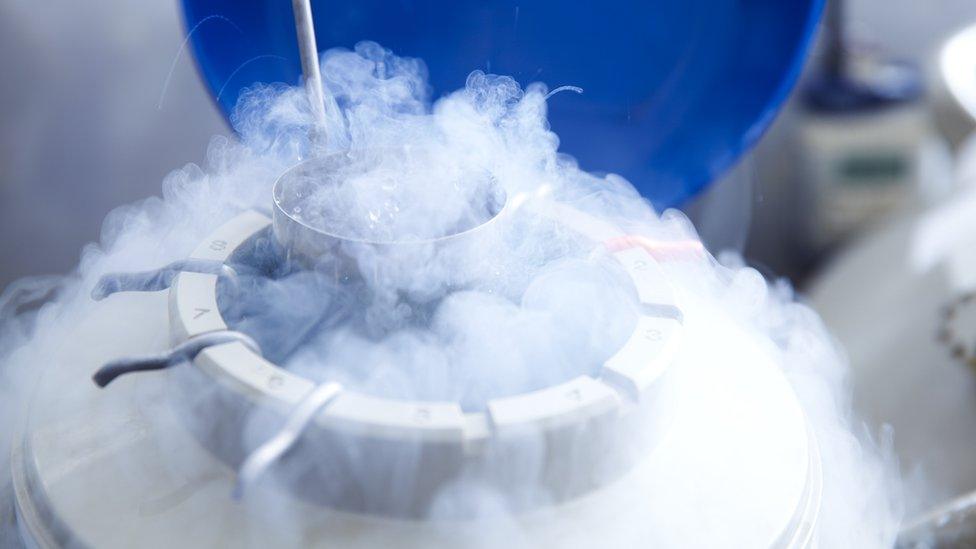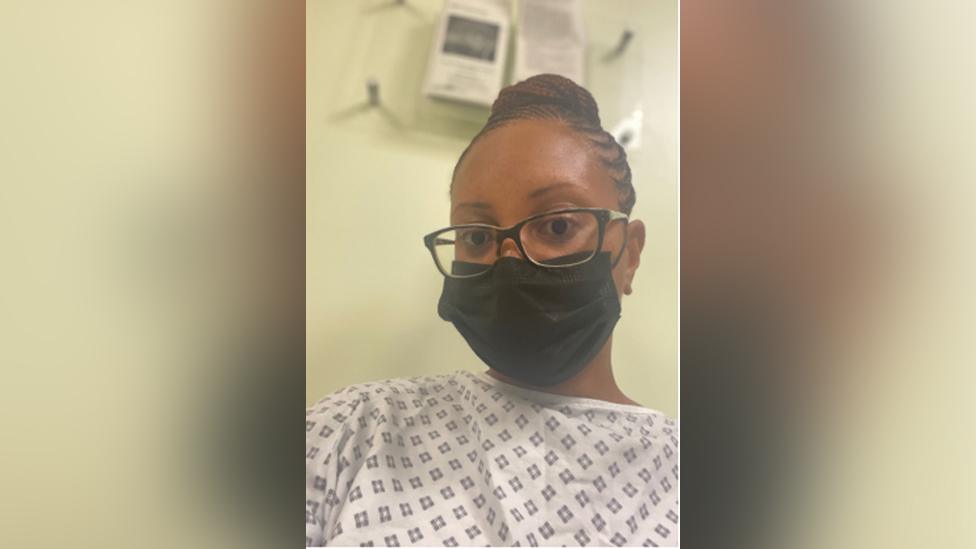Homerton Fertility Centre's licence suspended over 'significant concerns'
- Published

A fertility clinic in London has had its licence to operate suspended due to "significant concerns" about the unit.
The fertility regulator said it had ordered the Homerton Fertility Centre to halt any new procedures while investigations continue.
The clinic said there had been three separate incidents highlighting errors in some freezing processes.
This led to the "tragic loss of a small number of embryos" either not surviving or being "undetectable", it said.
This means an embryo that has been stored in frozen liquid solution in a container cannot be found during later thawing.
The BBC understands that as many as 150 embryos could have been affected in incidents involving up to 45 patients, although this has not been confirmed by the trust.
One recent patient from the clinic has told the BBC she is "distraught" after one of her stored embryos could not be found.
Rachel, not her real name, says she found out on the day she was due to have her embryo thawed and put into her womb last month.
"I'm distraught. I'm emotionally mentally drained," she said.
The Metropolitan Police confirmed officers attended the clinic on Friday following concerns raised by the Homerton Healthcare NHS Foundation Trust. "There is no police investigation at this time," it added.
'It's taking its toll everywhere'
The trust says it began an investigation late in 2023 and immediately made regulators fully aware of it - a routine procedure after any adverse incidents.
The regulator, the Human Fertilisation and Embryology Authority (HFEA), is now doing its own investigation alongside the trust.
The Homerton has informed the patients affected and apologised for any distress caused.
The clinic is permitted to continue treatment cycles which have already begun, such as those involving patients already taking medication.
In a statement, it said while the investigators have not been able to find any direct cause of the errors, it had made changes in the unit to prevent reoccurrence of such incidents:
All staff now work in pairs to ensure all clinical activities are checked by two healthcare professionals
Competencies of staff within the unit have been rechecked
Security in the unit has been increased
Its chief executive Louise Ashley said the clinic was writing to all its fertility patients, "apologising for the errors and for the concern this may have caused even if their eggs, embryos or sperm are unaffected. We will continue to keep them informed".
She added: "Current patients may continue to be treated at the unit despite the licence suspension by the HFEA, and our very dedicated staff are keen to support patients in whatever way they can."
The HFEA said it was rare for this type of action to be taken and that the clinic had referred itself for investigation.
Peter Thompson, chief executive of the HFEA, said it had "suspended Homerton Fertility Centre's licence to operate with immediate effect, due to significant concerns about the clinic".
He added: "We appreciate this may cause concern to patients who are undergoing treatment at the clinic, or have eggs, sperm and/or embryos stored there. We do not want to disrupt patients' treatment if they have already started medication as part of a treatment cycle, so we have made provisions to allow them to complete their treatment if they wish to do so."
The HFEA decides which clinics should have a licence to operate and does regular inspections.
The Homerton Fertility Centre, in Hackney, east London, provides a range of fertility treatment to NHS and private patients and has been licensed since 1995.
In April 2022, the clinic had to suspend fertility treatment because of staff shortages.
Rachel said she had been offered another cycle of IVF treatment by the clinic, but says it takes a physical and emotional toll.
"It's impacting our relationship, it's impacting our family life. It's impacting our jobs. It's impacting my husband's job massively. It's taking its toll everywhere," she said.
What is embryo freezing?
Embryo freezing is a method of preserving fertilised eggs so they can be used at a later date.
The process involves removing eggs from the ovaries, fertilising them with sperm from a partner or donor to create embryos, and letting them grow for several days before freezing them.
The embryos are stored in liquid nitrogen under carefully-controlled conditions and are thawed when a woman is ready to have a baby. Unfertilised eggs, and sperm, can also be frozen.
Women who are at risk of becoming prematurely infertile include those having cancer treatment or going through early menopause.
Sources: NHS, Human Fertilisation and Embryology Authority and Johns Hopkins University

Have you been affected by any of the issues raised here? You can get in touch by emailing haveyoursay@bbc.co.uk, external.
Please include a contact number if you are willing to speak to a BBC journalist. You can also get in touch in the following ways:
WhatsApp: +44 7756 165803
Tweet: @BBC_HaveYourSay, external
Please read our terms & conditions and privacy policy
If you are reading this page and can't see the form you will need to visit the mobile version of the BBC website to submit your question or comment or you can email us at HaveYourSay@bbc.co.uk, external. Please include your name, age and location with any submission.
- Published14 February 2024

- Published26 April 2022
